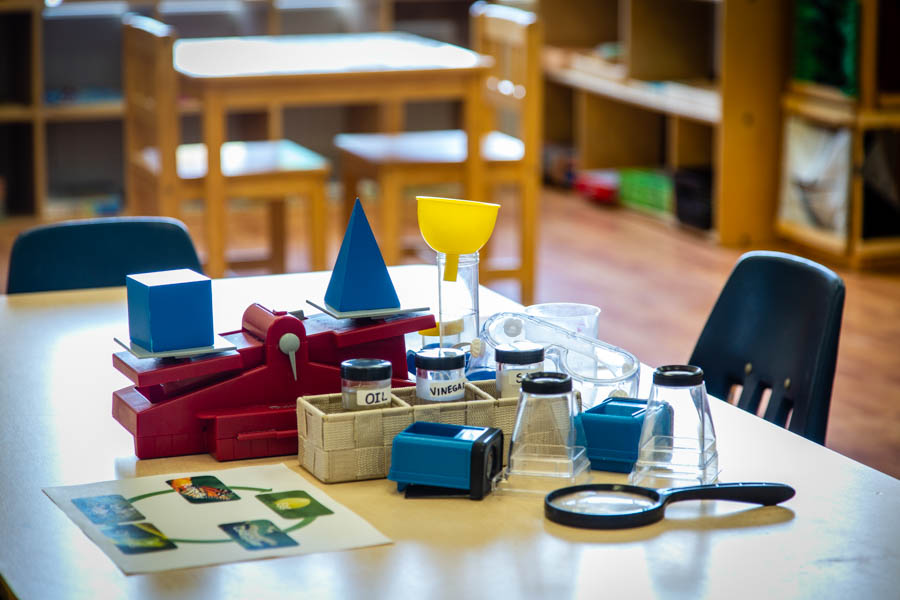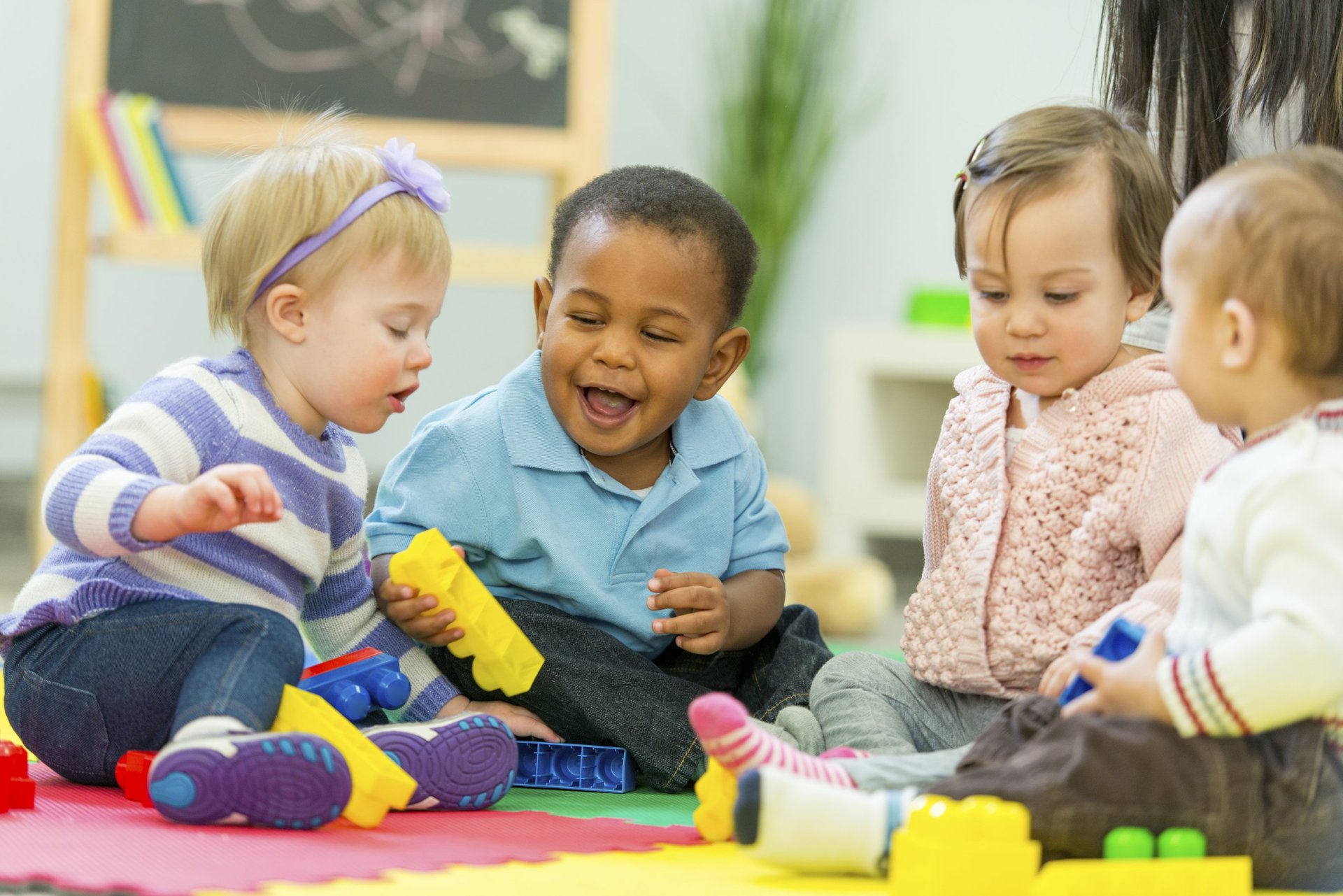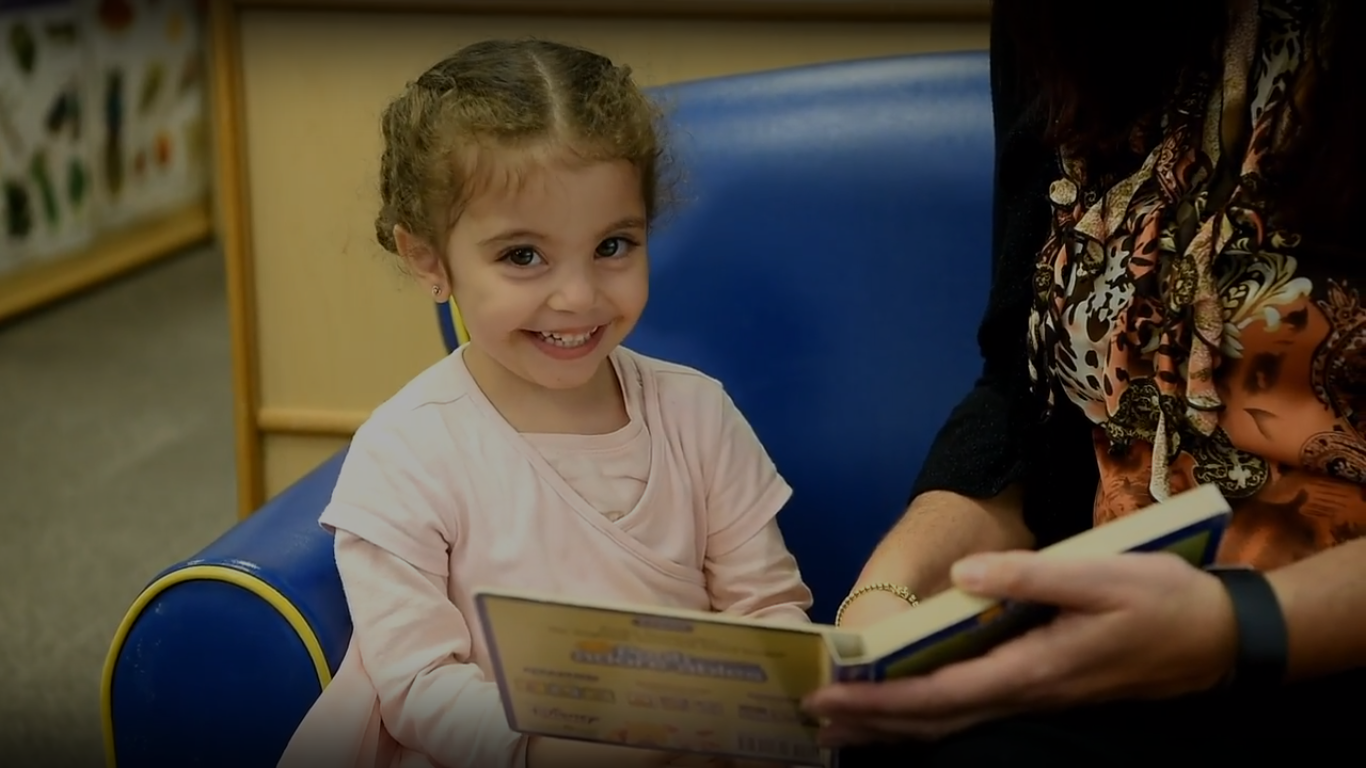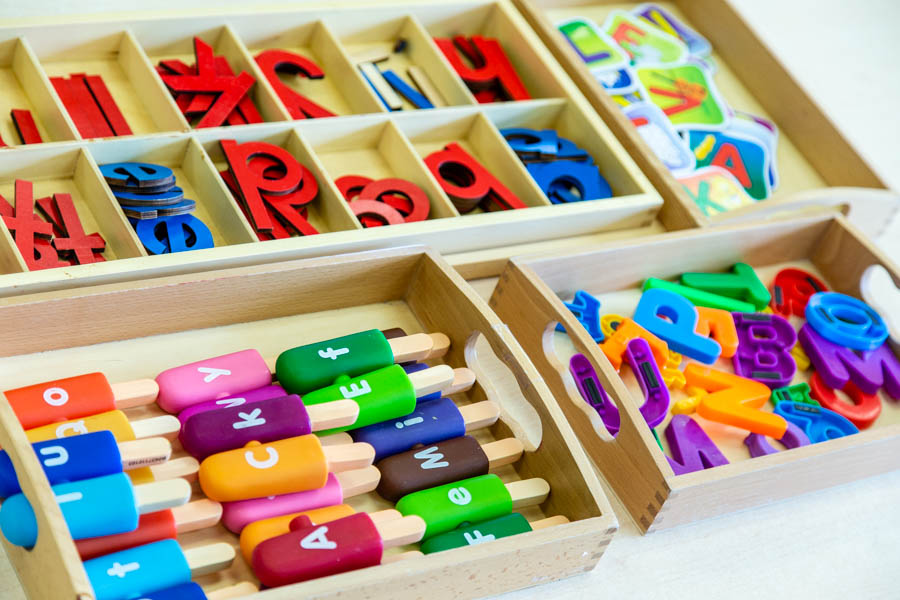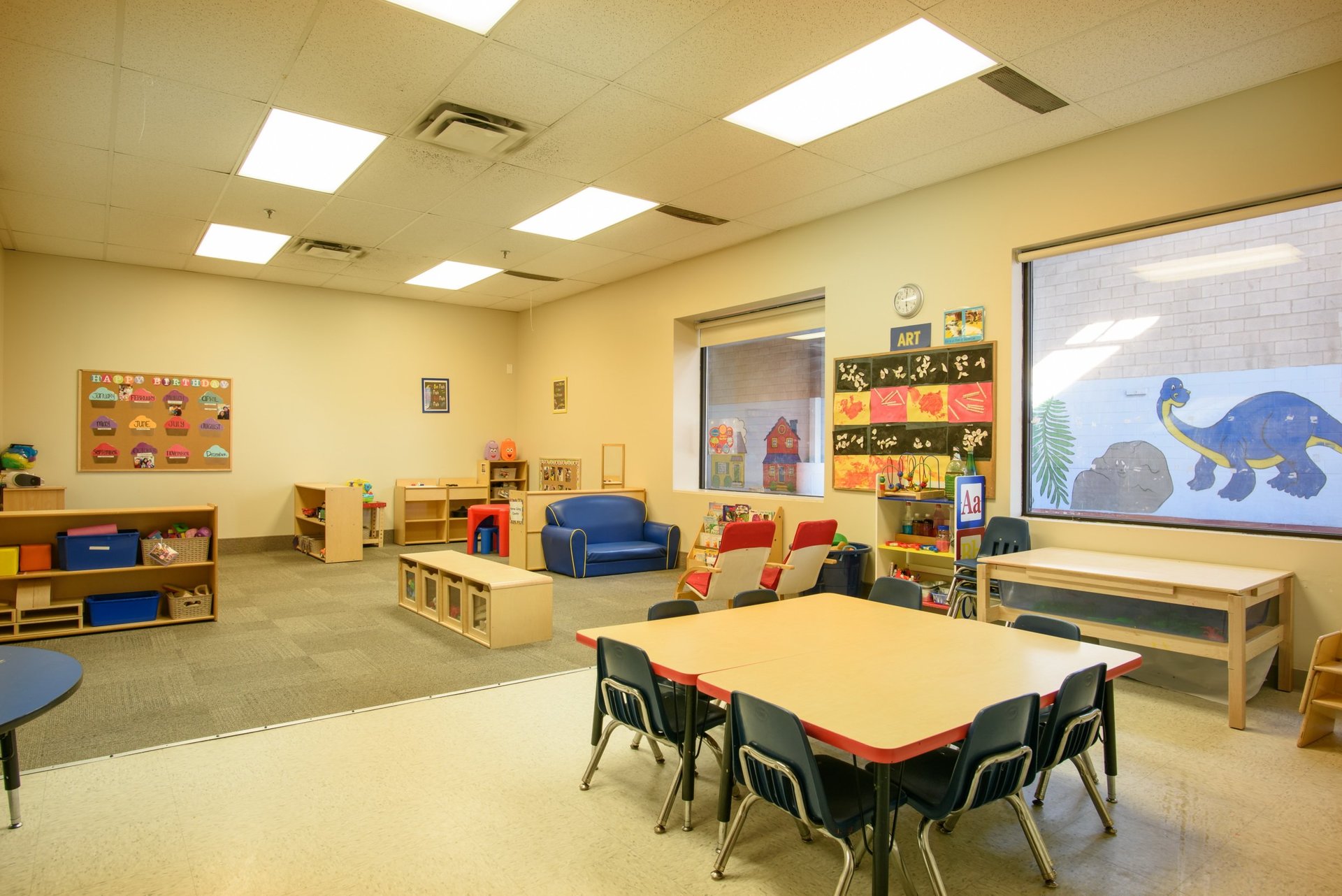Halloween: Tips to prepare your toddler or preschool child
Halloween: Tips to prepare your toddler or preschool child to be safe and have fun!
By Nichole Folino
Halloween can be an exciting and scary time for children. For most of their lives we have told them not to talk to strangers and now here we are sending them up to peoples houses that they don’t know and telling them to take candy from them. How can we as parents make sure that our children feel safe and have fun on Halloween night?
It is important to be honest and prepare your child in advance, even if they aren’t having anxiety. Talk to them about what the night will be like, let them know that they are safe and okay with you. Ask them what they are excited about and help them with any fears they may have. It is important that they realize that there might be scary costumes and that it is only a person underneath that.
Here are 5 tips to ensure success on Halloween.
1. For young children, it is best to avoid masks, which can be scary and also difficult to see from. We recommend using non-toxic face paint to complete their costume if needed.
2. Purchase costumes in light coloured material if possible which will help drivers to see your child on a busy street. For darker costumes, you can add reflectors to the front and back of the costume.
3. Your child’s costume should fit properly to ensure they do not trip and fall. They will be going up and down stairs quite a bit, so ensure they can move freely.
4. It is important to remember that some candy given out on Halloween can be a choking hazard for young children. Also, be sure to check it for anything that may have open wrapping or looks like it has been tampered with.
5. If you have friends who live in the area with children, it is great to invite them to join you. This could help with any anxiety your child could be facing. It’s always fun to go trick-or-treating in a group.
If you still feel that going out trick or treating may not be the best for your child, you can always look into events in your community. Check out the local mall, the library, a community centre or even consider hosting your own party and inviting friends. There are many daytime events at indoor playgrounds in the area that host Halloween parties for young children.
At Alpha’s Discovery Kids, the toddler and preschool children get to experience trick or treating indoors, and some of them for the first time! We put on costumes and each class visits all the other classes to trick or treat. The day continues with fun Halloween activities. For information about our programs, contact us.
STEAM – How to Foster a Love for Science Discovery in Young Children
At Alpha’s Discovery Kids Preschool and Daycare, we understand the importance of educating children in all areas to help them to grow and develop. Science is one of the key programs that we focus on in our Four Pillars of Learning curriculum. It is the first letter in our STEAM program. Science can be a hard area for some of us to wrap our heads around, especially as adults. We think of volcanos and osmosis when we think of science, but if you look at the activities your child does in their day, science is everywhere.
By introducing science to children at a young age, we begin to foster their interest in the subject and their success in that subject at school. It helps them to problem solve and better understand their world around them. Science allows children to make predictions, complete observations and determine an outcome. Science easily links with many other parts of our program such as math and art. For example, we discuss the types of animals in the arctic and the temperature (math), and have them create puppets from paper bags (art).
Science is also a great way to calm children. If negative behaviours are happening at home or at school try using art and science as a way to alleviate some of those issues. Children generally love exploring with science, they love the mess, and the use of imagination. Simply mixing colours is a great way to show children science. Ask them what they would get if they mixed red and blue, blue and yellow or red and yellow. Have them try mixing their own colours to see how many different colours can be made.
Children want to be involved. Science can be simple at home as well. You can grow a garden or flowers. Allow them to help put in the soil, to water the plants. Make a graph of how tall it is getting. Show them how you can cook with what you grow. Cooking can involve both math and science by measuring and mixing ingredients to make something new. All these things are simple and will help your child to be excited about learning.
Here’s a list of some great simple science experiments that we do with the children in our programs that you can try at home.
1. Lava lamp. Take a water bottle and fill it with the following ingredients.
a. Water
b. Oil
c. Food colouring
2. Colour changing flowers. Put the flowers in a glass with water and food colouring and watch the flowers change colours.
a. White carnations
b. Glasses
c. Water
d. Food colouring
3. Magic milk (one of my favourites). Mix all the ingredients on a tray. Watch what happens.
a. A large flat tray
b. Milk
c. Liquid food colouring
d. Dish soap
e. Cotton swabs
4. Painting on ice cubes.
a. A piece of ice
b. Paint
c. Tray to collect the water as it melts
All of these simple activities can be found online on Pinterest and in Youtube videos. They are simple and easy to do and you may find your child asking to do them over and over again. With any science experiment it is important to ask questions.
1. What do you think will happen? – Make a prediction.
2. What actually happened? – Observe the results.
3. Why/How did it happen? – Make a hypothesis to explain what happened. You may need to do some research with your child to explain why or how it happened.
It is always fascinating to make observations about what your child was able to understand. Then 6 months later do the same activity. You will be amazed at how much more your child is aware of and the questions they ask. Now get out there and have fun.
Visit our curriculum page for more information about how we incorporate science into our four pillars of learning through the STEAM curriculum. We have truly developed an exceptional program that focuses on the child as a whole. We believe that language, literacy, STEAM and mindfulness can provide children a path for continuous growth.
How To Transition From Home to Daycare
How To Transition from Home to Daycare
How To Transition from Home to Daycare by Nichole Folino, RECE
Having been in the childcare industry for almost 20 years, I can tell you honestly that enrolling your child into a quality childcare facility, is truly one of the best things that you can do for them. Is it scary for you and them? Yes, of course, but the experience they will have there is invaluable. Childcare teaches them sharing, patience, teamwork, empathy and so much more. It was always easy to stand in a kindergarten classroom and tell which children had been in childcare and which had not.
There are important steps that you can take when deciding to put your child into a childcare program. First and foremost, make sure you feel comfortable there. After taking a tour of the facility make sure you understand and agree with their values, ask questions and feel confident in your decision. Those few things will help to ease some of the anxiety that you will feel.
When it comes to helping your child adjust and be prepared for the first time in childcare, there are many things that you can do.
1. Transition together
Most childcare centres have a transition period to some degree. Take advantage of it. Spend time with your child in their classroom and with the teachers. This will help you and your child to feel comfortable while they explore the new environment. If you feel that your child may need additional transition time, don’t be afraid to speak to the supervisor.
2. Be Honest
Be honest with them about what to expect during their time there. Give them examples like, when you get to school you will see Ms. Jones, then you will play inside with the toys, then you will go outside on the playground, have lunch, a nap and finally you will have another snack before I pick you up. Setting realistic timelines for your child will help them understand their day and when to expect you.
3. Drive by the Centre
When driving by the childcare centre, point it out to your child. Remind them that they will be going there and provide them with days. You can say, in two days you will get to go and see Ms. Jones. It is important to speak fondly of the teacher and the childcare.
4. Say Goodbye
Lastly, but almost the most important is that you say a quick and confident goodbye to your child. Saying goodbye with confidence shows your child that they are safe. Most children will stop crying shortly after their parents leave. If you are concerned, you can also call the centre and find out how they are doing. Sending a comfort toy from home, whether it be a blanket or stuffed animal can help.
As a mother, I firmly believe that one of the best things I did for my children, was to put them in childcare. I believe it helped them to be prepared for the school system in ways I couldn’t have imagined. They were confident and not scared to leave me the first day of Kindergarten. It was me that cried when they went inside. It provided them a social experience that I could not have given them. They made friends easier and knew how to take turns. They were creative and could express themselves in healthy ways. Finding childcare is easy, finding a childcare that aligns with your vision is rewarding.
Conclusion: How To Transition From Home to Daycare
At Alpha’s Discovery Kids, we offer three free transition days prior to starting full-time to help you and the child adjust to our program and routine. If you would like more information about our centre, click here to book a tour.
Minimize First Day of Kindergarten Jitters
Minimize First Day of Kindergarten Jitters
Minimize First Day of Kindergarten Jitters – By Susie Beghin
Every September a new wave of children is introduced to the Kindergarten classroom. This transition from home or daycare to the elementary school system can be easy and seamless when you take the right steps. There are many things parent and the daycare professionals can do to help ease the transition.
Preparedness for Kindergarten is not about the knowledge your child has—whether they can read, or even if they know their letters or numbers—it’s about how much independence and confidence they have and how well socialized they are. These key skills play a role in how well they might adapt to the classroom. Helping your child develop these characteristics can be accomplished at home and daycare leading up to the first day of school. But how can parents and caregivers do this?
At Alpha’s Discovery Kids we provide our families with a readiness checklist, but parents can develop their own, based on their child’s needs and abilities. There is a consensus amongst experts of five key things you can do to prepare your child for this important life event.
1. Encourage Self-Care
• Teach self-help skills like dressing—learning zippers and buttons, shoes and boots, coats, mittens.
• Teach them how to put things into, and take them out of, a backpack, and how to use all types of lunch containers. Teach them to tidy up their things and keep track of their belongings.
• Ensure your child is capable when addressing their bathroom needs. In Kindergarten they will not get assistance, and this could result in a child being sent home.
2. Follow regular routines
• Make sure there is a consistent bed time that provides your child with enough sleep to ensure they are attentive and productive in the classroom. In general, the consensus is 10 hours a night for Kindergarten-aged child.
• A regular morning routine is also critical. It is recommended you get your child used to waking up at the same time every day, getting dressed and eating breakfast, all with plenty of time before they have to be ready to leave for school without being rushed.
• Build free play time into your daily schedule, both with parent involvement and without. Individual playtime helps develop creativity and allows the child time to decompress without any expectations or influence from others.
• Part of having a routine is having a schedule and keeping it. At home it would be easy to give in if your child wants to dawdle through lunch. A school schedule is much more rigid, and if 30 minutes is allotted for eating, then that’s what they will get. Teach your child to transition from one activity to another when it is time. Continue reading “Minimize First Day of Kindergarten Jitters” below.
3. Encourage Socialization
• Register your kids in parent-free activities. Art classes, dance, and sports are all excellent opportunities to create a sense of independence and comfort. They will learn that their caregivers will always come back for them.
• Participation in team sports is a great way for children to learn cooperation and teamwork, which will really help them in a school setting, both in the classroom and on the playground.
• Children who regularly attend preschool and daycare are automatically socialized due to their group environment and don’t really need other types of group activities until Kindergarten.
4. Develop healthy habits
• Eat healthy foods. Teach your children about the difference between healthy food and treats (sometimes food).
• Start the day off with a healthy breakfast to make your child is alert and ready for learning.
• Drink lots of water to keep the brain and body hydrated to optimize learning. Keep fruit juice as a sometimes food, and minimize soda consumption as much as possible.
• Get plenty of sleep. Experts recommend 10 hours of sleep a night, but if your child needs a nap to recharge when they get home from Kindergarten, especially in the early months, don’t discourage them. If the nap interferes with their ability to get to sleep at night, limit the length of the nap.
• Make sure your child has regular physical examinations and is up to date with their immunizations. Remember, many school systems will suspend attendance if the immunization record is not up to date.
5. Talk to your child about Kindergarten
• Visit the school. Take advantage of all events offered that allow you to bring your child to the school—open houses, Meet the Teacher events, and orientation sessions.
• Travel the route your child will be taking to school, whether they’re walking, driving, or taking the school bus. If you’re walking, learn how long it will take you to get to school, and plan that into your routine. Give your child the opportunity in advance to look at all the interesting things along the route so they will be less distracted when school actually starts. If taking the school bus, drive the route with them so they can develop familiarity with their surroundings and will be able to recognize landmarks when they are nearing their bus stop. Talk about school bus safety—staying seated when the bus is moving, keeping track of their belongings, and only leaving the bus stop with their designated caregiver.
• Take them to the school to play in the playground. Learn some playground games like hopscotch or Four Square so they will not feel lost or overwhelmed during those first few recesses.
• There are some really good books you can borrow from your local library that explore the kindergarten transition. Read them with your child and encourage them to ask questions.
Parents also have expectations of their child when entering Kindergarten, but it’s important to remember that all children reach milestones at different times and not to measure your child against anyone else. It doesn’t matter if your 4 year old can’t read yet. Work with them at home to support their preschool’s efforts, learning letters, numbers, colours, and shapes.
Whether a child has stayed home with parents or other caregivers or has attended a daycare or preschool, there are steps you can take to lessen your child’s anxieties related to starting school. Following these suggestions will help ease the transition into the structured, often overwhelming world of kindergarten. With love and support, everything will be fine for everyone involved.
Thanks for reading: Minimize First Day Of Kindergarten Jitters
Thanks for reading: Minimize First Day of Kindergarten Jitters
10 Language and Literacy Activities You Can Do With Your Child at Home
10 Language and Literacy Activities You Can Do With Your Child at Home
10 Language and Literacy Activities You Can Do With Your Child at Home – By Susie Beghin
Earlier this month, we posted the first in a series of articles highlighting the 4 Pillars of Learning approach we use at Alpha’s Discovery Kids. This two-part article addressed our approach to developing Language and Literacy skills in the children under our care. While the children spend a lot of their time in our centre, it’s important that their language and literacy is nurtured at home as well. In order to help our parents, we have created a list of things they can do at home with their young kids to complement our practices. A lot of these activities do not require scheduled time since they can be done as part of everyday life and should be encouraged amongst all caregivers.
Literacy Activities
- Read aloud with your child: There is a reason experts always recommend reading with your children. It is the most important thing you can do to develop their literacy skills. It helps their brains develop, it improves concentration, and helps create a sense of curiosity about the world around them.
- Use alphabet magnets/stickers/cards to learn letter sounds: It doesn’t matter what order they learn their letters, so start with the ones that are used most often—S A T . Gradually add in other letters, like the letters in their name. Add more as they gain proficiency.
- Play Alphabet Concentration: Write the uppercase and lowercase alphabets on index cards to create a deck of 52 cards. Play concentration, matching the uppercase letter to the lowercase letter. Have the children make the letter sounds as you play.
- Drawing: Learning how to hold a crayon/pencil/marker properly and how to make whatever shapes they want helps children when they start learning how to draw the specific letters of the alphabet. If they draw with confidence, they will write with confidence.
- Go on an Alphabet Walk: Before you go for a walk, choose a letter sound. See how many things you can find that start with that sound while you walk. This will also increase your child’s awareness of their environment and increase their vocabulary.
Language Activities:
- Talk to your child: As with reading to your children to develop literacy skills, talking to your children is one of the most important things you can do to help them develop their language skills. Children whose parents talk to them have larger vocabularies and will use more advanced sentence structures. Use new words (for example, good, yummy, tasty, delicious, etc., to describe food) and ask them if they understand and can explain what the new words mean. Describe your activities as you perform them so they can start making connections to abstract words and ideas.
- Play “I Spy”: It teaches children how to use language to describe the things in their environment. Depending on how you play, it will develop their knowledge of colours and letter sounds, so mix it up and play both ways.
- Create stories using images: Using picture cards, photographs, images cut from magazines, etc., allow your children to create their own narratives. They will use their words to describe what is happening in the story. This helps develop language, teaches them how to project and predict what will happen next, and develops their creative thinking.
- Sing songs: In the car, while out and about is a perfect place to sing songs with your children. Not only is it fun, but it helps pass the time while driving in the car! Children love songs with actions so try to do the actions as you go.
- Play rhyming games: Choose simple words from objects in your environment and see how many rhyming words you and your child can come up with.
As you can see, these are all simple activities that don’t take up a lot of time. Some of them can effortlessly be incorporated into your everyday life. Older siblings and extended family members can easily participate. A person’s brain is at peak ability to learn language between the ages of 1-6 years, so the efforts invested in developing your child’s language and literacy skills now will pay off in their ability to communicate in the future. And that’s 10 Language and Literacy Activities You Can Do With Your Child at Home.
Thanks for reading 10 Language and Literacy Activities You Can Do With Your Child at Home, by Susie Beghin
The Importance of Language and Literacy for Children in Daycare – Part 2
The Importance of Language and Literacy for Children in Daycare – Part 2
The Importance of Language and Literacy for Children in Daycare – Part 2 by Susie Beghin
Language and Literacy is key part of the 4 Pillars of Learning at Alpha’s Discovery Kids Preschool and Daycare, with locations in Mississauga and Oakville. This month, we will continue to examine Language and Literacy for children in daycare and provide tips on how parents can incorporate the curriculum in their own homes.
How to Foster a Love of Reading
The benefits of phonological learning in preschoolers is widely accepted by educators and child development experts. As part of our Language and Literacy Program, we utilize the highly successful Jolly Phonics literacy program. We focus on first learning letter sounds, not names, and rather than following the traditionally accepted alphabet sequence, we start with the most common letter sounds. The first ones we concentrate on are S A T, the common letter sounds in the English language. We sing songs to help develop association with the letter sounds, and then progress through the rest of the alphabet in a similar fashion. Once the sense of the letter sounds is developed, we learn the letter names. This approach encourages early reading in a fun way, and early reading helps develop literacy skills.
There are several ways we approach reading in the daycare and preschool environment. There are two types of reading activity: Interactive Reading and Dialogic Reading. Interactive Reading itself then takes two approaches. The first approach is the traditional storyteller format—an adult or older child reads to a child or group of children. The children listen and observe, but do not actively participate in the storytelling itself. In the second approach, the adult prompts the child or children with questions like “What do you think will happen next?” The children are encouraged to fully participate in the storytelling experience by asking questions, or making statements related to the narrative and their understanding of it. This type of reading encourages reading comprehension, projection, big picture thinking, and creativity.
Dialogic Reading, on the other hand, puts the child in charge or the narrative. The child tells the story to an adult or other children, either by reading or reciting from memory, or creates a story entirely their own by interpreting the pictures in a book in their own way. This creative interpretation puts the child in charge, encourages creativity, and develops language and vocabulary skills. This approach requires a lot of patience as the child will tell the story in their own way and we should refrain from correcting them as they tell the story.
Children’s Choice is Best
When reading we let the children choose the books they want to hear or read, because if the book is not interesting to them, they won’t engage. Reading won’t be fun, it will be a chore, or worse, a punishment. If a child is starting to read on their own, we let them go at their own pace, not rushing them along. When they make a mistake on a word, a correction is gently made to help them remember for next time, but it does not become the focus of the activity.
These are just some of the ways we incorporate Language and Literacy skills in our classrooms to help your children thrive. Stay tuned for our next blog post, where we will provide you with ways you can continue and enhance your child’s Language and Literacy development at home. If you want further information about our 4 Pillars of Learning click on the Curriculum page.
Thanks for reading The Importance of Language and Literacy for Children in Daycare – Part 2
The Importance of Language and Literacy for Children in Daycare – Part 1
The Importance of Language and Literacy for Children in Daycare – Part 1
The Importance of Language and Literacy for Children in Daycare – Part 1 – At Alpha’s Discovery Kids Preschool and Daycare, located in Mississauga and Oakville, we have created a curriculum that fosters children’s natural curiosity through exploration, play and inquiry. Our curriculum focuses on The 4 Pillars of Learning: 1) Language and Literacy, 2) STEAM (Science, Technology, Engineering, Arts, Math), 3) Physical Activity and Nutrition, and 4) Mindful Awareness. Over the next few months, we will be examining the 4 Pillars in-depth, and providing tips on how parents can incorporate the curriculum in their own homes.
First Pillar Of Learning
Language and Literacy is the first Pillar of Learning because it is the foundation for acquiring all other skills. The ability to communicate effectively, through both verbal and written communication, is key to learning all other subject areas and achieving academic success.
Language and Literacy go hand in hand, especially when working with young children. A toddler’s brain is at peak ability for learning, meaning a solid groundwork for language and literacy can be established at this time. As a person ages, we lose the ability to easily learn new things, but for young children presenting language and literacy together is easy and natural, because they are not differentiating written language from spoken language the way adults do. It is all just learning how to communicate.
There are many ways to develop language and literacy in young children. When engaging with the children we use full sentences, not “baby talk”, and use the vocabulary suitable for whatever we are doing at the time. We encourage children to ask questions about new words. We enunciate clearly so they can hear the letter sounds we are using. To help develop speech, we give them time to get their thoughts out. We do not speak for them or assume we know what the want to say. If they need something, we encourage them to ask for it. If they can’t articulate what they want, then we model the words for them, e.g., “Oh, you want some water? Here is your water.” This will help them frame the question for the next time.
Embrace The Opportunity
Many of the children who come through our doors everyday speak a different language at home and then English when they come to school. Often they will become interpreters for other, older family members. We don’t see this as a challenge, we recognize it as an opportunity. A person’s brain is at peak ability to learn language between the ages of 1-6 years. To fully exploit this, we take the opportunity to introduce them to Canada’s other official language, French, in our classrooms. We use songs to introduce them to the French alphabet, numbers, colours, and basic words, giving them a head start on learning the language, since public schools don’t usually introduce French until fourth grade. If a parent wants to pursue a French immersion program, their child will begin with a solid base in the language.
These are just some of the ways we incorporate Language and Literacy skills in our classrooms to help your children thrive. Stay tuned for our next blog post, where we will continue to provide more information about how we teach children to read and tips for parents to use at home too! If you want further information about The 4 Pillars of Learning, click on the Curriculum page.
The Importance of Language and Literacy for Children in Daycare – Part 1
by Susie Beghin
The New Paradigm For Daycare and Preschool: Alpha’s Discovery Kids—Oakville Grand Opening
Alpha’s Discovery Kids—Oakville Grand Opening
A New Daycare in Oakville Ontario
On June 8, 2019, I had the good fortune to attend the Grand Opening of Alpha’s Discovery Kids — Oakville. There were a lot of people who came out to celebrate with owner Susie Beghin and her family—dignitaries, like Oakville MPP Stephen Crawford, staff, friends, local families interested in the prospect of a new daycare and preschool in the area, and many business colleagues who have supported her along the way to achieving this milestone.
When you enter the foyer of the centre, framed on the wall is a quote from Pulitzer Prize-winning poet and noted educator Mark Van Doren: “The art of teaching is the art of assisting discovery.” This is very much representative of the approach Alpha’s Discovery Kids has been taking to preschool education in their Mississauga location since 2012. Susie started fulfilling her dreams as an ECE (Early Childhood Educator) in 2004 when she opened an indoor playground, Alpha’s Discovery Club, offering a new and unique play environment with children’s programs and other activities. This was the first step in a long-term goal of offering top-quality daycare and preschool education to children in Mississauga and the surrounding areas, and, although she has since shifted her focus to expanding the preschool aspect of her business, the idea of play and learning is still very much a part of their core curriculum.
Inside The New Oakville Daycare
The new Oakville location of Alpha’s Discovery Kids is freshly renovated and equipped, and has a capacity of 48 children. There are three rooms, divided by age group:
● A Toddler Room (12m–2-1/2yr), with capacity for 15 children
● A Junior Preschool Room (2-1/2–3-1/2yr), with capacity for 15 children
● A Senior Preschool Room (3-1/2–-5yr), with capacity for 18 children
There is also a large, outdoor play area with a rubberized, soft surface for safety, lots of equipment and toys, and both sun and shaded areas. The children enjoy two hour-long outdoor play sessions as part of their curriculum. There is also a 2-hour nap every day for the full-time students who still need that rest time, while those who no longer nap participate in quiet activities.
Curriculum-wise, Susie and her team have developed what they call the 4 Pillars of Learning, and they use this approach at both Alpha’s locations. The 4 Pillars are:
1. Language and Literacy: Reading and writing is taught for every age group, to some extent. Theses are considered Foundation skills. In order to learn, you have to be able to read and write.
2. STEAM: Science, Technology, Engineering, Art, and Math—These days we are hearing a lot about encouraging STEM careers for high school students, particularly girls because of the lack of women in these fields. STEM activities are taught to all children at Alpha’s, but they also include the category “Art” in their curriculum to foster creativity in growing minds. Creativity is essential, because without it there are no advancements
in technology.
3. Physical Activity and Nutrition: Taking care of your body is important and it is never too early to start teaching children how to do this. The children at Alpha’s participate in both indoor and outdoor physical activities at least twice a day. They are taught about how eating well helps them take care of themselves, and they have a fully catered menu, approved by a Registered Dietician, that follows the New Canada Food Guide.
4. Being Mindful: The children at Alpha’s learn about mindfulness as part of the core curriculum. They are taught the importance of kindness, problem solving skills, self-regulation and self-calming techniques, and mindful stretching.
Aside from this ground-breaking approach to preschool curriculum, why else should a parent consider Alpha’s Discovery Kids?
● They offer flexibility. Alpha’s has a variety of part-time options, to suit almost any family’s schedule. If your family has special scheduling needs, they will do their best to accommodate you.
● Alpha’s not only teaches Technology to your children they use it to keep parents in touch with their children’s day-to-day activities using an app called Hi Mama. While this type of technology is available to other daycare providers, Alpha’s is second-to-none at exploiting everything the app has to offer the parents—pictures in real time, schedules of the day’s activities, menus and food consumption on a daily basis, sleep patterns, and real time progress reports of the children’s learning. A lot of this information is also available on their website.
● Quality teachers and ECEs. The Mississauga location has low turnover, with many employees there for over 5 years. They are committed to the centre and to the kids, and this commitment gives the kids a sense of continuity and safety.
● Alpha’s follows an “emergent curriculum”. What does this mean? It means they are flexible in their lesson plans and they are always listening and paying attention to what the children are showing a sustained interest in on any given day. If the questions about one topic keep coming, the staff does their research and in the next day or so they come armed with a lesson plan or experiment that will engage the kids on the topic and help them learn more about it. They believe that, when kids are interested and engaged, the learning comes naturally.
It has been a long time since my kids were young enough to require daycare and preschool options, but after learning a few years back about the dedication and commitment Alpha’s has to their charges, and the groundbreaking approach they take to preschool education, I almost wish they did. Instead, I recommend Alpha’s every chance I get, to anyone I know with small children. The Oakville community, especially their children, are very lucky to have the new Alpha’s Discovery Kids in their midst.
Conclusion
Alpha’s Discovery Kids in Oakville, located at 609 Ford Drive, Unit 3–4, Oakville, ON, L6J 7Z6, is now accepting applications for their waiting list. Please contact Susie Beghin at 905-337-7225. Click here to contact us by email.
Daycare in Mississauga: The Do’s and Don’ts of Dropping off your Child
Dropping Off Your Child At Daycare
Dropping Off Your Child At Daycare – It’s almost time to head back to school or daycare in Mississauga for many kids who have been at home with their parents. Some kids may be experiencing separation from their parents for the first time. Many parents struggle with the separation of an anxious child when dropping off at school or daycare. You may be worried and heartbroken when you see them crying right when it’s time for you to leave. You are not alone. At Alpha’s Discovery Kids Preschool and Daycare in Mississauga, we have seen this many times and we can help you make the transition from home to preschool or daycare as smooth as possible.
- DO – Say goodbye to your child and give them a hug and kiss. Let them know you love them and you will be back.
- DO – explain that you will be back after a certain activity such as (after outside time) or (when they wake up from nap time) etc. it’s good to make a plan so the child can relate the time of day you will return.
- DO – make a plan for a special activity you will do with them after you pick them up and stick to it. It could be something simple like reading a favorite book together or playing a favorite game or going to the park. This serves as a great distraction that the teacher can talk about after you leave.
- DO – remind them that they will have fun and show them some of the fun stuff they will do.
- DON’T – sneak out when they are not looking. This never works and usually leaves the child more anxious and fearful.
- DON’T – look scared and sad to leave your child. Your child is looking at you and needs to know that they are safe and there is nothing for them to worry about. This may take a bit of acting on your part, especially if it is your first child and they are separating for the first time.
- DON’T – linger or watch by the door or window. Make your goodbye brief and don’t stay too long. It’s better for you to leave and let the child start the process of becoming independent. I can assure you that the longer you stay, the longer the child will cry.
- DO – Call the preschool or daycare and check on your child. You will feel better when you know your child has calmed down. They eventually calm down and get distracted by all the fun they are going to have.
- DO – understand that a transition takes times and your child will not adjust right away. They need time to get used to a new teacher and a new environment. Some children can adapt quickly while others need more time – sometimes weeks or months. Each child is unique but they will eventually make the adjustment.
We know it is difficult to walk away when your child is in tears, but if you follow these do’s and don’ts, we can almost guarantee that the child you pick up will be smiling, happy, and excited to tell you about their day at school. And remember that you are teaching independence and that is an important skill for life!
Speech/Language: Does my child have speech delay?
 Is my child’s speech delayed? This seems to be a question that many parents are asking their daycare teachers in Mississauga and the surrounding area. More and more families are becoming aware of developmental delays and are being proactive in seeking help through daycare centres.
Is my child’s speech delayed? This seems to be a question that many parents are asking their daycare teachers in Mississauga and the surrounding area. More and more families are becoming aware of developmental delays and are being proactive in seeking help through daycare centres.
At Alpha’s Discovery Kids, there are a variety of highly trained Early Childhood Educators with experience and resources to support children ages 12 months to 5 years in all areas of development. Our philosophy centres around being an inclusive daycare environment to provide the best care for children at every stage of their development.
There are numerous resources online to educate yourself on “typical” child development but every child is different. Even as adults, we all have strengths and weaknesses but finding the right resources in order to develop our skills is an ongoing journey of development. In Mississauga and the Peel Region; there are several programs that can help you and your family with speech and language.
Many child development experts agree that the first step to developing your child’s speech and language is to seek a daycare environment that best suits your family. The daycare environment has so many opportunities for genuine peer and teacher interactions that can support your child’s language skills as well as their social interactions. The teachers are trained to provide experiences that allow your child to grow their language skills at their own pace.
The second step is to seek the advice of a resource consultant who can support you and your family at the daycare. In Mississauga, we are supported by a regional program called Peel Inclusive Resource Services (PIRS) which allow the educator and resource consultant to work directly with families to give families available resources, tips and advice to support the child to achieve speech and language goals.
Finally, it is a good idea to speak with your child’s doctor and seek a referral for your child to get a speech and language assessment by a speech and language pathologist. In the city of Mississauga, there are several free resources for every family to give their child the best start in life.


